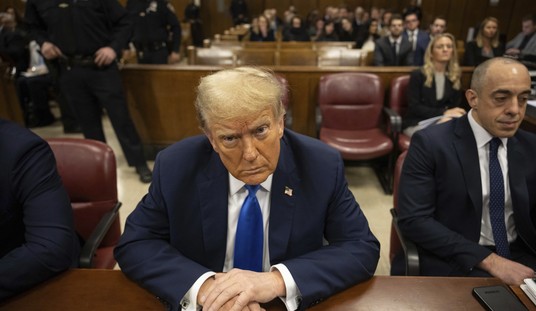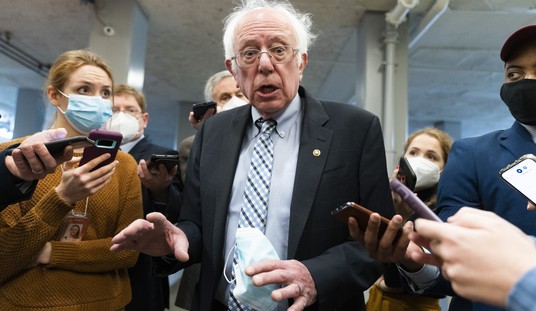The top news story of 2014 feels a lot like 1989.
They haven’t gotten their demands met, but the Umbrella Revolution in Hong Kong was no less than extraordinary — protesters led by kids not necessarily old enough to vote, battling for the right to freely choose their leaders after China weaseled as expected on a commitment to give the Special Administrative Region universal suffrage.
Joshua Wong began fighting Chinese rule when he was just 15 years old, organizing protests and foiling the PRC’s plans to force “patriotic education” classes at his Christian school and other campuses. This year, at age 17, the leader of the Scholarism movement, along with college-student leaders Alex Chow, Lester Shum and other youths, rallied hundreds of thousands of people into the streets. With the looming threat of the Chinese overlords and their sordid history of confronting democratic protests, the youths were in hot water the minute they stepped out onto the pavement.
But they stayed there from the end of September until the last of their camps were forcibly dismantled by police before Christmas. Hundreds were arrested over the course of the protests. Hong Kong authorities have yanked some teen protesters from their parents, putting them under the care of the state — including a 14-year-old girl detained and separated from her father for drawing chalk flowers on a protest wall. The student leaders know that the Chinese government is not finished with them: they’ve been banned from entering China, they’re spied upon and subject to arbitrary arrest, and they’ll never know what punishment awaits next.
Yet they’re not giving up. These are the 21st century incarnations of the Tank Man, that anonymous legend who single-handedly halted an advancing column in Tiananmen. They popped open their umbrellas to shield their bodies from the tear gas and pepper spray, and made a rainy-day instrument a symbol of a brighter tomorrow.
“If you have the mentality that striving for democracy is a long, drawn-out war and you take it slowly, you will never achieve it,” Wong told CNN. “You have to see every battle as possibly the final battle — only then will you have the determination to fight.”
The battle that played out in the streets of Hong Kong will have legs not only for their region. China, naturally, fears that fervor will be reignited in their people, sick of repression of speech, religion, the press and every other fundamental right. Tibetans and Uighurs are already restless, and Beijing views basically every move by Taiwan as separatist.
“If China remains a dictatorship it could be even more bloody than the 20th century,” a Tiananmen student leader who landed on China’s most wanted list warned at a House subcommittee hearing in May.
The Umbrella Revolution groundswell gives hope for an Asian Spring, in which basic human freedoms would trump trade deals and western governments would come face to face with their own shortcomings in wanting to avoid those awkward conversations with China, Vietnam and, yes, Cuba.
Since there is strength in numbers, particularly in the global square of social media, the people-power effect of movements such as the Umbrella Revolution can have a trickle-down effect — or, as we saw during the Arab Spring, a waterfall effect.
And movements for freedom across the globe, whether from dictators or Islamic extremists, could use any extra boost.
Take Turkey, which has been stirred by occasional protests yet is poised to see pro-democratic forces grow even stronger in opposition to President Recep Tayyip Erdogan’s rule. The latest outrage was last week’s arrest of a 16-year-old boy who faces up to four years behind bars for calling Erdogan a “thief.”
This week, the hashtag #IWantMyCountryBack has been trending among Libyans sick of their country being co-opted by terrorists after finally getting rid of the dictator. The social media campaign came the same week that ISIS posted a beheading video from Benghazi, underscoring the literal turf war between good and evil there.
“I don’t want my only choice in life to be between wasting my best years here, or leaving my friends & family,” tweeted Nada Elfeituri, the founder of Benghazi Writers.
Syria’s revolution began with peaceful protests in 2011, with students to elders filling streets in Damascus and lifting only their voices against Bashar Assad. Government snipers began picking off demonstrators from their rooftop perches, eventually forcing them to fight or be slaughtered. Early predictions of chaos and mass slaughter in the face of global inaction have come to fruition, taking shape in a way even worse than imagined with the Islamic State swallowing half of the country.
Despite the persistent threat to their lives and their quiet, olive-producing town west of the highway that links Homs and Aleppo — cities reduced to ruin thanks to Assad’s fury — Kafranbel residents have continued protesting via English-language signs tweeted out to a world that would have completely forgotten about Syria had ISIS not set up shop on the other end of the country.
Activist Raed Fares, who came up with the banner protest idea and survived an assassination attempt last January, told Syria Deeply in October that the town weathers daily regime air raids, no running water for the past three years and no power for two years.
A 2012 banner grimly foretold Syria’s fate: “World! Your shameful inactivity will reproduce thousands of Bin Ladens.” Kafranbel’s sign for Christmas 2013? “Merry barrel bombs! Merry terrorist Assad! Merry careless world! Merry big mouth Obama!” Their sign this past weekend: “2015 won’t be a ‘happy new year’ at all while Assad is still killing us and shedding blood everywhere with USA’s blessings.”
Asked if there is one thing he would tell President Obama, Fares said, “I believe that he, 10 years from now, will consider that his biggest mistake was Syria, just as Clinton did when he stated that his biggest mistake was Rwanda.”
When the townspeople gather for a demonstration, the Assad regime begins shelling. That, and more than three years of pleas with no result, have many understandably losing hope. Will the world listen? Is this their interminable fate?
Is this the same feeling Wong, Shum, Chow and the other Hong Kong protest leaders will have in a few years — crackdowns followed by a world unwilling to stand by their side?
“There’ve been many massacres in Kafranbel and the shelling is ongoing,” Fares says, vowing to carry on until the country is free from both Assad and ISIS. “A people who have lived such events will not be deterred and will not be silenced until we get our demands.”
And Tuesday in Moscow’s Manezhnaya Square, protesters gathered as scheduled to voice discontent with President Vladimir Putin’s persecution of opposition leader Alexey Navalny, the war on Ukraine, and Putin’s general authoritarian rule. Punk band Pussy Riot released a video to draw people to the protest. Russian authorities blocked the Facebook event page and tried blocking off entrances to the square. The square began to fill. Hundreds were arrested. Navalny was promptly seized and returned to house arrest.
“The fact that I have been detained does not mean anything at all,” Navalny tweeted to his supporters. “I do not know how to do anything that you do not know how to do.”
They’re not the only ones bringing out the worst in Putin, from the Euromaidan in Ukraine to the Siberian autonomy movement.
The aspirations and bravery of the teens who took on China this year laid a foundation that will see them through a rocky 2015 and beyond. And hopefully the Umbrella Revolution will unite in spirit all seeking freedom from oppression in the year ahead.
Top three #OccupyHK student leaders reunited last night after being arrested. L-R Lester Shum, Alex Chow, Joshua Wong pic.twitter.com/zRMnMy7uIR
— Joanna Chiu 赵淇欣 (@joannachiu) September 30, 2014







Join the conversation as a VIP Member